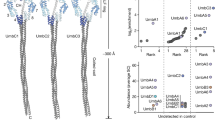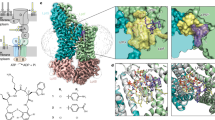Abstract
WHEN investigating the production of growth substances by Chlorella vulgaris var. viridis, difficulties were met which were ascribed to a growth-inhibiting substance, possibly Pratt's ‘chlorelline’1. Staphylococcus aureus proved to be a suitable test object for the growth inhibition. Small pieces of filter paper or agar slices containing concentrated and dried crude ether extracts of Chlorella were placed on agar plates seeded with bacteria. After 2–5 hr. of diffusion of the extract, and incubation of the bacteria at 37° C., clear inhibition zones were visible around the filter paper or agar slices.
This is a preview of subscription content, access via your institution
Access options
Subscribe to this journal
Receive 51 print issues and online access
$199.00 per year
only $3.90 per issue
Buy this article
- Purchase on Springer Link
- Instant access to full article PDF
Prices may be subject to local taxes which are calculated during checkout
Similar content being viewed by others
References
Pratt, R., Amer. J. Bot., 29, 142 (1942); 31, 418 (1944); 35, 634 (1948).
Author information
Authors and Affiliations
Rights and permissions
About this article
Cite this article
BLAAUW-JANSEN, G. Chlorophyllide, the Probable Precursor of a Growth Inhibitor. Nature 174, 312–313 (1954). https://doi.org/10.1038/174312b0
Issue Date:
DOI: https://doi.org/10.1038/174312b0
This article is cited by
-
Isolation and antibiotic properties of cis-hexadeca-4,7,10,13-tetraenoic acid from the algaScenedesmus obliquus UA-2-6
Chemistry of Natural Compounds (1978)
-
Excretion of photosynthale by a benthic diatom
Marine Biology (1969)
Comments
By submitting a comment you agree to abide by our Terms and Community Guidelines. If you find something abusive or that does not comply with our terms or guidelines please flag it as inappropriate.



